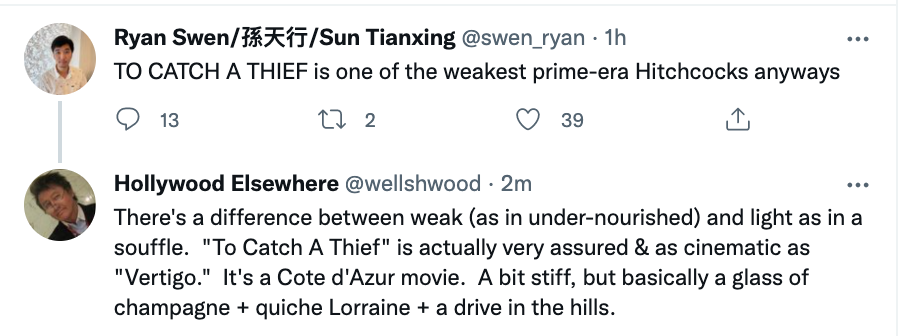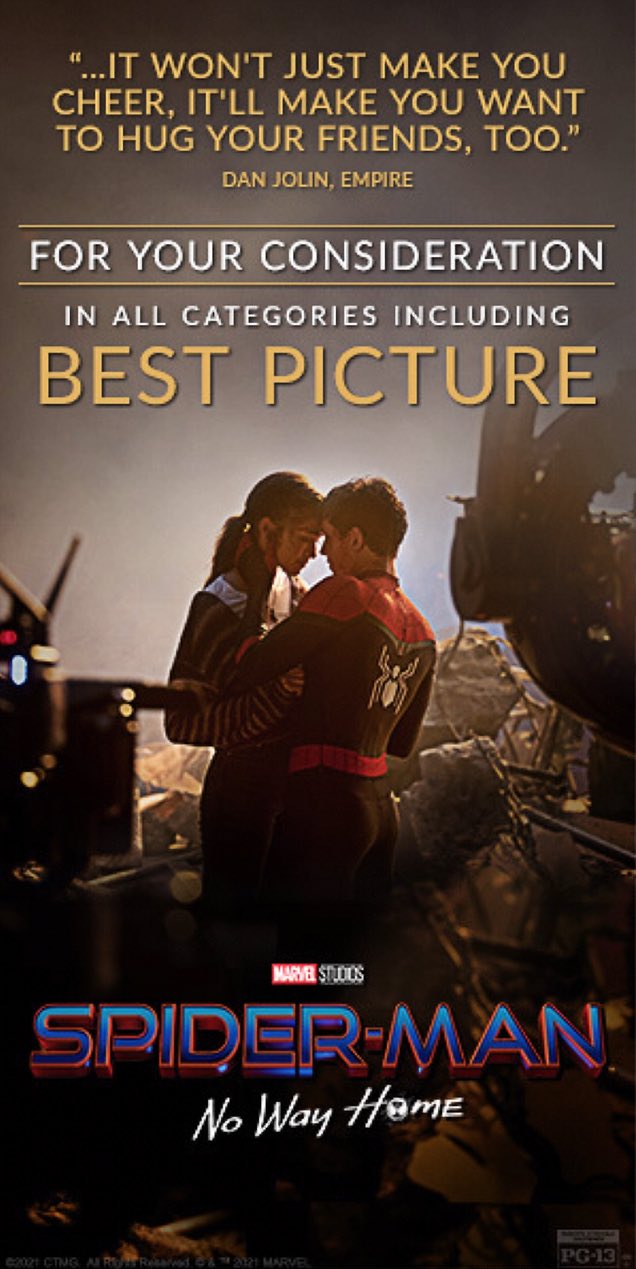Gal Gadot as a facsimile of Grace Kelly? Or will she play Cary Grant‘s John Robie?

Gal Gadot as a facsimile of Grace Kelly? Or will she play Cary Grant‘s John Robie?

HE follower “Jeff” suggested listening to a Big Picture podcast about Licorice Pizza. The hosts are Sean Fennessey and Amanda Dobbins; the guests are Chris Ryan and Wosny Lambre.
Naturally they focus on the age-inappropriate relationship between Cooper Hoffman and Alana Haim (respectively playing an ambitious 15 year-old actor and a floundering, ambivalent 25 year-old woman who lives with her parents) and the John Michael Higgins racial insensitivity thing blah blah.
“Jeff” thought I might enjoy a brief passage around the 49-minute mark in which Wosny shrugs at the age-inappropriate thing. I rolled my eyes, couldn’t have cared less.
What really happened is that I got hung up on the voices. Not Fennessey — a stable, sensible-sounding guy — but Dobbins and her uptalky, vocal-fry, Valley Girl-ish (I hate it when people say “becuzz” rather than “because”), and Wosny pronouncing absurd as “ubbsurd” and saying “bayzigally”…stuff like that. And too often my two least favorite words in the dictionary — “incredible” and “amazing” — are used to convey enthusiasm.
Some Millennials, man. Chalk on the blackboard.

Herewith some HE reactions to “Hollywood’s New Rules,” a just-posted article by Peter Kiefer and Peter Savodnik, and excerpted in a 1.11.22 HE article titled “Hollywood Is a Woke Prison Colony“:
It’s “interesting” and approvable that Keifer and Savodnik have managed to cobble together a portrait of totalitarian woke terror in Hollywood (inclusive hiring mandates, BIPOCS are saintly and sainted, cultural shifts, only white guys get punched down upon, the Academy’s “woke house” museum).
But of course, this is nothing that hasn’t been noted or noticed or mentioned in a hundred different ways by Awards Daily or Hollywood Elsewhere or George Orwell or, in their private, never-to-be-publicly-acknowledged realms of inward meditation, any number of industry veterans with half-honest inclinations, at least with themselves.
Keifer and Savodnik have based this article upon traditional shoe-leather and notepad reporting (including actual on-the-record sources like Howard Koch, Jr. and Sam Wasson), and that is commendable.
But you can also sense or sniff out the presence of scores of creatives and producers and screenwriters and peripheral, lower-level sources who were too terrified to even answer K & S’s emails, texts and phone calls.
This is a good article but the notion of a massive class-action, anti-discrimination suit by Hollywood white guys? That’ll NEVER happen…please.
I’m assuming that the unnamed editor-in-chief of The Hollywood Reporter, referenced in the opening paragraph, is Matt Belloni, whose precise title between ‘17 and ‘20 was “editorial director”. The source of this story was a THR employee who heard Belloni’s pitch and noted the derisive responses of THR staffers. It certainly wasn’t Belloni himself.
The piece is primarily composed of scraps and inferences and tidbits. Yes, Keifer and Savodnik have only scratched the surface. They certainly haven’t found a Hollywood equivalent of a Howard Beale or a Jay Bulworth who doesn’t give a damn and is just coughing up the real truth and let the chips fall where they may. But it’s a good honest stab at “the terror.”
From “Hollywood’s New Rules,” a just-posted article by Peter Kiefer and Peter Savodnik, available via Bari Weiss‘s “Common Sense” Substack:
“Hollywood, like many industries, does have a clubbiness about it. And pretty much everyone on the inside insists it should open up to those who had, for decades, been kept out. But the heavy-handed mandates, the databases, the shifting culture — in which pretty much all white men were assumed to have gotten their jobs because they had the right tennis buddies or ZIP code or skin color — raised the possibility of a new kind of clubbiness.
“The result has not just been a demographic change. It has been an ideological and cultural transformation. We spoke to more than 25 writers, directors, and producers — all of whom identify as liberal, and all of whom described a pervasive fear of running afoul of the new dogma. This was the case not just among the high command at companies like Netflix, Amazon, and Hulu, but at every level of production.

“How to survive the revolution? By becoming its most ardent supporter. ‘Best way to defend yourself against the woke is to out-woke everyone, including the woke,’ one writer said. Suddenly, every conversation with every agent or head of content started with: Is anyone BIPOC attached to this?
“Maybe it’s 15 percent about the belief that it will bring more people into viewing content, and 85 percent about the fear of being attacked on social media or in places like the Hollywood press or The New York Times,” a writer and producer said.
“You’ve got to be insane not to have at the forefront of your mind all of these racial and gender and trans issues when you’re writing something. You have to worry about the impact that everything you do will have on your career. And that has an obvious chilling effect on creativity.”
“There was a feeling, among those who didn’t hew to the new orthodoxy, that it was becoming harder not only for certain people to find work but for a certain kind of content — ballsier, more provocative — to get made.
“They were scared of what was happening. The fear, one prominent director said in an email, is ‘the audience stops trusting us. They begin to see us as a community twisting ourselves into a pretzel to make every movie as woke as possible, every relationship mixed racially, every character sexually fluid, and they decide that we are telling stories set in a fantasyland instead of a world they know and live in. If that happens, and they decide to throw themselves instead into video games 24/7, we will lose them.'”
The audience will stop trusting us? Baby, that train left the station four or five years ago, minimum, if not earlier.
The Hollywood Reporter‘s Scott Feinberg is reporting that the 94th Academy Awards, slated to air on 3.27.22, will have a host — the first since the 90th Oscars aired in 2017.
And if the Academy honchos understand anything about the culture and how sick people are of Hollywood’s woke bullshit, they’ll go to Dave Chappelle on their knees and beg him to accept the gig. Please, bruh…we’ve gone insane over the last four or five years and have fucked ourselves royally…we’ve isolated ourselves from most of the ticket-buying public, and we need you to save us from our own viral insanity.
The trans community will scream in protest if the Academy taps Chappelle, and that’s fine because Joe and Jane Popcorn don’t give a shit. Nobody wants to give trans people any kind of hard time, but their banshee shrieking and howling is not a popular tune on the hit parade.
Feinberg reminds that Spider-Man: No Way Home star Tom Holland “has expressed interest in hosting the Oscars, and “that the Academy did reach out to him to explore that possibility.” Please, dear God…no!
Whoever is chosen to host the 94th Academy Awards will be investigated by Woke Twitter, and if the prospective host has ever said one “wrong” thing in an interview or tweeted one “incorrect” thing they’ll be killed…dragged and eviscerated and disemboweled by wild dogs. Which is another reason why Chappelle is such a great choice. The twitter wolves have already gone after him and done everything they can to take him down, and he’s still standing.
Click here to jump past HE Sink-In
I’ve been a Marvel Cinematic Universe skeptic for several years now. I’m not a confirmed hater because of Joe Johnston‘s Captain America (’11), Peyton Reed‘s Ant Man (’15) and Anthony and Joe Russo‘s Avengers: Endgame (’19), all of which I was down with. But otherwise the MCU has been darkening my brow for some time, and until recently the second Spider-Man reboot, in particular, rubbed me the wrong way.
Five years ago I posted an angry rant about the then-forthcoming Spider-Man: Homecoming, the first Tom Halland reboot. “I don’t want to see this,” I kvetched and moaned. “I really, really don’t. Who’s with me? That was a joke. The studios crank out another and the herd comes right over and starts slurping. I’ve loved a few Marvel flicks, okay, but c’mon, man…enough.”
Two years later (i.e., early 2019) I wrote how turned off I was by the prospect of sitting through Spider-Man: Far From Home. “Sending a superhero to Europe to liven things up, needless to point out, is a sure sign of franchise fatigue,” I declared. “The idea of Hydron, lord of the waters, wreaking CG havoc upon poor Venice, Italy…to paraphrase Frank Gorshin‘s version of Kirk Douglas, the very idea makes me sick to my stomach.”
Roughly two months ago I turned up the volume. “I hate everyone and everything connected to Spider-Man No Way Home,” I wrote. “Okay, I don’t really mean that. I hope the film makes money and those who like to sit through this crap will feel satisfied or at least placated. But if I could erase the Spider-Man cinematic universe from everyone’s consciousness by clapping my hands three times, I would definitely clap my hands three times. Maybe that means I do hate everything connected to it.”


And then, as Joseph Heller once wrote, something happened.
On Thursday, 12.16 I caught a 7 pm showing of Spider-Man No Way Home at the AMC Grove. A couple of hours later I was shocked to admit that my concerns about Jon Watts, Chris McKenna and Erik Sommers‘ film were unfounded.
I’m not saying I was 100% delighted with the first half of it. But a tiny bit later everything started to change and advance and coagulate, and the trippier, hall-of-mirrors aspects of the “multiverse” plot started to kick in, and the movie got quieter and more reflective and then joyful…the crowd broke out in cheers three times…and I was suddenly going “holy shit, this is really working!”
I drove home in a state of pleasant disorientation. At 10:45 pm I tapped out two surprising statements. I wanted to sound cool and dry and circumspect, but I couldn’t stop myself.
(1) “Unlikely as this may sound, it is HE’s conviction that McKenna and Sommers’ SM:NWH script has resulted in one of the most cosmically out-there meta-Marvel experiences ever, not exactly logical but one of the most emotional Marvel sink-ins (and that includes Avengers: Endgame).”
(2) “As much as I hate to admit this, Spider-Man: No Way Home is easily one of 2021’s best films. It actually should be nominated for Best Picture because it turns the proverbial magic key — it turns audiences on. I was there and I felt it, dammit. This is what people go to the movies for. It even ends a little bit like Warren Beatty‘s Heaven Can Wait…almost. I’m sorry but the last 45 to 50 minutes are really good. I was totally sold. Call me flabbergasted. At the finish, everyone applauded.”
In other words (and I’m sorry for using eight paragraphs to get to this point), the fact that a skeptic and an in-and-out hater and sour-attitude guy like myself…the fact that I pretty much melted down and dropped to my knees in praise of the second half of Spider-Man: No Way Home and am now sincerely urging that the Academy nominate it for Best Picture Oscar…well, this means something. It really does.
I’ve been watching movies professionally and taking the pulse of this industry for more decades than I’d care to admit to, and I know what it feels like when a film connects…when it hits that sweet spot and lifts the spirits of an audience and injects a feeling that is rare and special. It happened to me on 12.16.21, and it’s been happening to tens of millions of ticket-buyers since Spider-Man: No Way Home opened. It’s now the sixth-highest-grossing film in history in North America, and has taken in over $1.5 billion worldwide.

Does this mean Spider-Man: No Way Home deserves a Best Picture nomination for profits alone? Because it’s earning a phenomenal amount of theatrical revenue at a time when the future of theatrical is in doubt worldwide, especially with the latest Covid assault making things all the more difficult for theatres to stay afloat? No, I wouldn’t say that.
But the emotional feeling that led to this wild box-office tsunami…the spiritual surge that resulted in this astonishing popularity does merit a Best Picture nomination, mainly because no other 2021 film has come close to creating it.
And here’s what that vibe, that surge, that feeling is actually about. Sappy as it may sound, the second half of Spider-Man: No Way Home is about forgiveness and family. Has there every been a superhero film in which the protagonist tries to release the villains from their rotten karma and give them a second chance? Not to my recollection. And when have the blessings of family felt more welcome and tangible — the saga of a young adult whose difficult struggle is aided and soothed by the arrival of two uncles?
Before I began writing this I was telling myself there are two family films in 2021 Best Picture contention — Belfast and King Richard. It was only when I was halfway through this essay that the truth hit me — Spider-Man: No Way Home makes for a third, and it offers the warmest family embrace of all. And that‘s why it’s a Best Picture contender, you bet. Ask any non-cynic (i.e., not David Poland) who’s seen it. The proof is in the pudding.
Indiewire‘s David Ehrlich is an excellent editor as far as year-end recaps are concerned, but my God, what a mostly horrible year 2021 was, excepting the top 30 that I mentioned in this 12.19.21 post. Okay, not the films as much as that hideous Sparks song from Annette, “So May We Start?”…Jesus. Not to mention The Green Knight and the dour melancholy pills represented by Spencer and The Power of the Dog. Was 2021 as bad as 2020? Perhaps not, but it sure came close.
“Jesus…losing power…I gotta land this thing now, but where?…God, I’m Sully Sullenberger!…think fast!…oh, wait, maybe I can land on those railroad tracks up ahead…yeah, that works…okay, don’t panic…set her down…just aim for those tracks….yeah, that’s it.”
From Richard Rushfield‘s latest Ankler column, “The Sound of No Globes Clapping“: “While founded as a promotional vehicle for Hollywood films, there’s a very good case to be made that the awards firmament these days (Oscars, Globes, CCA, BAFTAs, guilds, critics groups) may actually chase more viewers away than it brings in, if you look at this from the audiences’ perspective (remember them?).”
In other words, the cinematic intrigues of Joe and Jane Popcorn and the awards-giving fraternity used to overlap on occasion and would be “good for business,” as the phrase goes.
As recently as five or six years ago, Best Picture competitiveness for films like La La Land ($447 million worldwide), Manchester By The Sea ($79 million worldwide) and Moonlight ($65 million worldwide) would occasionally translate into good box-office energy. The term “quality-level awards contender” used to mean “hmmm, maybe it’s worth catching at the AMC plex.”
But no longer. In fact, once the word gets out that Guy Lodge, Amy Nicholson, Eric Kohn, David Fear, Ella Taylor, Walter Chaw, David Ehrlich and Justin Chang are strongly recommending this or that film, your basic popcorn hoi polloi response is “okay, definitely not theatrical….not if those guys are high on it…strictly an HBO Max or Netflix or Amazon-er…maybe.”
Rushfield: “On that entire campaign trail there was exactly one stop” — i.e., the Golden Globes — “that wasn’t a burden to slog through. Yes, it was thrown by people whom ‘The Community’ didn’t take totally seriously. But maybe it wasn’t such a horrible thing for stars-participants-audience to refuse to treat an awards show with the same solemnity as, say, the announcement of a new cancer treatment.
“And now, congratulations…at a moment when Hollywood is, shall we say, realigning its relationship with the viewing public, they got rid of the one event that stood a chance still of winning over a few fans, portraying the Hollywood weltanschauung in a slightly less weltschmertzy light. With essentially sizzle reels for TV shows and films, and stars who weren’t birthed on TikTok.”
Posted by Newsweek‘s Jon Jackson at 1:08 pm Pacific: “Pope Francis warned on Monday about the ‘one-track thinking’ caused by “cancel culture” as well as the spread of misinformation related to COVID-19 and vaccines.
“In comments made during an address to diplomats, the pope cautioned against ‘a form of ideological colonization, one that leaves no room for freedom of expression and is now taking the form of the cancel culture invading many circles and public institutions.”
“Reuters reported that the pontiff said the words ‘cancel culture’ in English while otherwise speaking in Italian during the long speech. The news agency speculated that he chose to do so because the topic is a point of controversy in English-speaking countries like the U.S.”
Pope Francis went on to chastise Hollywood publicists and talent managers for deciding en masse last year to cancel the “flawed but human” Hollywood Foreign Press Association and the Golden Globe awards.
“We’ve all recognized for many decades that the Hollywood Foreign Press Association is just another an organization of prostitutes…a group looking to promote Hollywood product, and in so doing enjoy the industry perks and enrich itself and take a ride on the gravy train,” the pontiff said. “Which is exactly the same goal and attitude of Joey Berlin and the Critics Choice Association. There are no priests or nuns in this racket, and they all have their hand out.
“We all understand, of course, that the HFPA was slow to adapt to the requirements of urban progressive culture by failing to add journalists of color to their ranks. But does that make them evil? Does this mean they need to die?”
Okay, the previous three paragraphs are entirely fictitious. Pope Francis said nothing earlier today about the Hollywood Foreign Press and the Golden Globes. But he might well have come to this conclusion privately. If he cared one way or the other. Maybe.
Now that he’s joined the anti-wokester brigade, Pope Francis surely recognizes that woke cancer has spread in a thousand different directions over the last four or five years, and that the people who decided to kill the Golden Globes in order to demonstrate the intensity of their commitment to anti-racism…Pope Francis surely understands that they’ve basically decided to commit a form of award-season hari kiri, and for no reason other than virtue-signalling.
Only fools would contend that Joey Berlin and the CCA are more moral or less race-conscious or more socially responsible than the HFPA. They’re all industry whores, all shilling at the trough, and the Hollywood machine has enjoyed the enthusiasms of these two groups for many years (decades in the case of the HFPA) so cut the shit, sonny.
Two days ago I wrote about the loss and recovery of my favorite comb, which I named “default blackie.” Nicely average-sized and bendable or, if you will, agreeably rubbery. And yet if I was being 100% honest I would’ve admitted that blackie isn’t quite small enough — my ideal size is around 75% or 80% of that dimension.
This morning I was cleaning our outdoor sunporch area, which involved removing all the plants and sweeping up the residue. Lo and behold I discovered a muddy, gunky, slime-covered junior-sized blackie, which had probably been out there for years. Tatiana saw my expression and cried out, “Oh, no, don’t do theese!”
A half-hour later I was scrubbing the rescue comb with a bristle brush, liquid soap and scalding hot water, over and over. Now it’s as good as new. I know this sounds like a minor incident within the great scheme, but it felt like an excellent thing.

BEST MOTION PICTURE – DRAMA
The Power of the Dog (Netflix)
BEST PERFORMANCE BY AN ACTRESS IN A MOTION PICTURE – DRAMA
Nicole Kidman, Being the Ricardos
BEST PERFORMANCE BY AN ACTOR IN A MOTION PICTURE – DRAMA
Will Smith, King Richard
BEST MOTION PICTURE – MUSICAL OR COMEDY
West Side Story (20th Century Studios / Walt Disney Studios Motion Pictures)

BEST PERFORMANCE BY AN ACTRESS IN A MOTION PICTURE – MUSICAL OR COMEDY
Rachel Zegler, West Side Story
BEST PERFORMANCE BY AN ACTOR IN A MOTION PICTURE – MUSICAL OR COMEDY
Andrew Garfield, Tick, Tick…Boom!
BEST MOTION PICTURE – ANIMATED
Encanto (Walt Disney Studios Motion Pictures)
BEST MOTION PICTURE – NON-ENGLISH LANGUAGE (FORMERLY FOREIGN LANGUAGE)
Drive My Car (Japan / Janus Films)
BEST PERFORMANCE BY AN ACTRESS IN A SUPPORTING ROLE IN ANY MOTION PICTURE
Ariana DeBose, West Side Story
BEST PERFORMANCE BY AN ACTOR IN A SUPPORTING ROLE IN ANY MOTION PICTURE
Kodi Smit-McPhee, The Power of the Dog
BEST DIRECTOR – MOTION PICTURE
Jane Campion, The Power of the Dog
BEST SCREENPLAY – MOTION PICTURE
Kenneth Branagh, Belfast